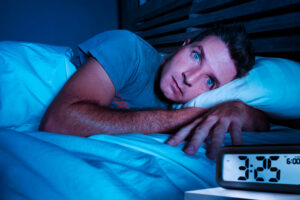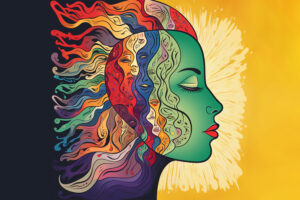Almost everyone is familiar with the placebo effect. But are you familiar with its evil cousin, the nocebo effect? The term has a latin root, noci, which means to injure or harm. The nocebo effect is the opposite of the placebo effect. While the mind is capable of manifesting beneficial effects when we believe that a particular practice or substance is beneficial, and it is also capable of manifesting harmful effects when the opposite is true. When using psychedelics, we are especially vulnerable to the nocebo effect, given the controversial place hallucinogens occupy in many cultures combined with their mind-bending effects.
What happens when you combine the mind-bending properties of psychedelics with a lifetime of propaganda? Many of us grew up being told that these drugs were illegal because they “melt our brains”. The substance itself can make you particularly susceptible to suggestion, and it’s difficult for many of us to completely let go of these assumptions.

Placebo Effect
Many treatments that don’t have a clear, scientific mechanism of action can still be beneficial due to the placebo effect. For example, the benefits of acupuncture are often attributed to the placebo effect. Medical science has concluded that meridians referred to in Chinese medicine do not exist. Studies have also shown that the benefits of acupuncture are very real and measurable. Interesting enough, studies have also shown that acupuncture does not even have to be done properly for there to be a benefit. Even with improper needle placement or fake needles, many patients still experience at least a temporary reduction in symptoms. Apparently, believing in the power of acupuncture is more important than the quality of the actual practice.
Physical Benefits of Psychedelics
The long-term physical impact of classic psychedelics are largely beneficial. They have powerful anti-inflammatory properties that could protect us from neurodegenerative disease, heart disease, and various autoimmune conditions. Yet most consumers, even the most avid among us, are not aware of these properties. To be fair, most of us are not particularly interested in any of these subjects until we are dealing with them ourselves.
Psychedelics are not necessarily on our minds when faced with crippling colitis or when Alzheimer’s starts creeping in. Psychedelics are the playground of the young and carefree, right? When an elderly parent starts becoming forgetful, it probably never occurred to you that regular psychedelic use may have helped stave off the decline. When we go to the clinic to get treatments with biologics for arthritis or colitis, no one is thinking about the fact that psilocybin is also a powerful TNFa blocker.
Urban Legends
Will it break your brain? Can psychedelics cause schizophrenia or HPPD and ruin your eyesight? You may have heard that they will destroy your ability to function at work. Everyone seems to have heard of at least one story of someone tripping and never making it back to reality. The culture around psychedelics is rife with urban legend and fantastical ghost stories. Funny enough, all of this noise seems to dissipate when psychedelic use in a medical setting is discussed, like ketamine infusion clinics. With the almighty dollar on the line, doctors are not as likely to contribute to this gaslighting.
Vulnerability to The Nocebo Effect
A psychedelic experience can make you impressionable. It is part of the therapeutic benefit, but it can also be an amplifier for the nocebo effect. Your mind is flexible and suggestible in this state, and very open to new influence. This is part of what makes psychedelics so effective for addiction or depression therapy, but it is also the Achilles heel. If deep down you believe that psychedelic use is harmful, it will undoubtedly contribute to the nocebo effect.
If you 100% believe that antibiotics are harmful poison, they will still work for treating your infection. You may suffer some psychological distress during treatment, but they will still work as intended. In the case of psychedelics, it’s a bit more complicated. The physical effects would probably be unaffected, but a deep conviction that they are harmful would probably interfere with your ability to benefit.
Self Sabotage
I knew a young man who was completely convinced that psilocybin was a poison. He asked: “Why else would we vomit from it?” He felt that his ability to benefit from psilocybin was limited, because he did not want to consume “poison” too often. None of this stems from reality. Psilocybin is not toxic and is definitely not a poison. The vomiting is usually caused by certain serotonin receptors being stimulated by the psilocybin, and though harmless, it is preventable. This individual had attributed various other symptoms to his having consumed this “poison”. He attributed some symptoms to the “brain damage” associated with psilocybin. But if the substance does not actually cause brain damage, where did the symptoms come from? The nocebo effect explains a lot here.
You don’t have to believe in the benefits of psychedelics with blind faith to benefit. This isn’t a cult. But at a bare minimum, do not let external prejudices impede you. The physical effects and safety of psilocybin and other psychedelics are relatively well documented. Your mind may become soft and malleable during this process, so allow yourself to take advantage of this new flexibility in a positive way. It is more natural to grow and thrive from this experience.





